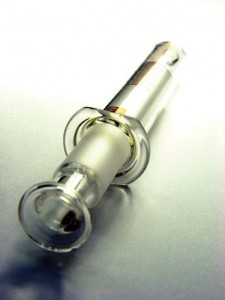March 28, 2013
News on Alzheimer’s Disease and Brain Health
U.S. Lagging Behind in Alzheimer’s Support
A report from the U.S. Senate Special Committee on Aging found that among five nations, the U.S. is falling behind in supporting the growing number of people with Alzheimer’s disease and other forms of dementia. Notable among the five nations— France, Japan, Australia, Great Britain and the U.S.—France is now implementing its third plan to address Alzheimer’s as a nation. The U.S. issued its first plan in May 2012.
The report examines trends that are currently under way in all five countries. These trends include coordinating research more effectively, diagnosing Alzheimer’s more reliably and improving training in dementia care by medical practitioners. Among the issues examined is the degree to which home-care services are available to people with Alzheimer’s or other forms of dementia.
The U.S. lags behind the others in paid long-term care support for people over age 65; home-based care provided for people over age 65; and the amount of hours of unpaid care provided by family caregivers.
Alzheimer’s Drug to Be Studied Again
An experimental drug from pharmaceutical company Eli Lilly that had mixed results in previous trials will be studied anew, according to a company spokesperson.
The drug, solanezumab, was targeted at people with mild to moderate Alzheimer’s disease, but failed to significantly improve cognition or daily functioning of people with mild to moderate Alzheimer’s in previous research. But the drug did show promise in improving the cognition of people with mild Alzheimer’s when they were separated out from the larger study results.
The new study, which will begin in the third quarter of 2013, will look more closely at how the drug affects people with mild Alzheimer’s. The beta amyloidbeta amyloid, a protein found in the brain of people with Alzheimer’s. The study will focus on 1,000 people age 70 to 85 who have varying levels of beta amyloid in their brains.
“We remain encouraged and excited by the solanezumab data,” David Ricks, a senior vice president at Lilly and president of Lilly Bio-Medicines, said in a statement. “We are committed to working with the F.D.A. and other regulatory authorities to bring solan- ezumab to the millions of patients and caregivers suffering from this devastating disease who urgently need this potential treatment.”
Dr. Reisa Sperling, professor of neurology at Harvard University, is leading the trial. She says her team hopes to find that solanezumab will slow memory decline by as much as 30 percent.
New Research Points to Possible Alzheimer’s Vaccine

lead to an Alzheimer’s vaccine.
A Canadian research team from Université Laval and CHU de Québec, along with pharmaceutical firm GlaxoSmith-Kline (GSK), has found a way to stimulate the brain’s natural defense mechanisms in people with Alzheimer’s disease. The breakthrough discovery could lead the way to a treatment for Alzheimer’s and even a vaccine to prevent the disease.
The researchers identified a molecule called monophosphoryl lipid A (MPL), which stimulates the activity of the brain’s immune cells. When injected into mice with Alzheimer’s symptoms over a period of 12 weeks, up to 80% of beta-amyloid plaques in the mice brains were eliminated. Beta amyloid has been closely associated with the development of Alzheimer’s disease. When tested over the same period, the MPL-treated mice showed significant cognitive improvement.
“When our team started working on Alzheimer’s disease a decade ago, our goal was to develop better treatment for Alzheimer’s patients,” explained team leader Dr. Serge Rivest, professor at Université Laval’s Faculty of Medicine and researcher at the CHU de Québec research center. “With the discovery announced today, I think we’re close to our objective.”
Space Travel Could Worsen Alzheimer’s, Study Finds
A NASA-funded study of lab mice found that the radiation one is exposed to in space might harm the brain and accelerate the development of Alzheimer’s disease.

Alzheimer’s disease.
In the study, lab mice were bombarded with varying doses of radiation equivalent to what they would encounter in space travel, including on a mission to Mars. After exposure, the mice were tested for their ability to recall certain objects or locations. Mice exposed to radiation were far more likely to fail those tasks, researchers found.
NASA is currently planning a mission to an asteroid in 2021 and to Mars in 2035. The agency has been funding research into the effects of cosmic radiation over the past 25 years in order to develop countermeasures and to determine the risks to astronauts of extended space travel.
“Galactic cosmic radiation poses a significant threat to future astronauts,” said Michael O’Banion, a professor at the University of Rochester Medical Center and senior author of the study, which was published in the scientific journal Plos One. “This study shows for the first time that exposure to radiation levels equivalent to a mission to Mars could produce cognitive problems and speed up changes in the brain that are associated with Alzheimer’s disease.”
Study: People with MCI Have Trouble Processing Information
It is well known that many people who have mild cognitive impairment (MCI), which can be an early stage of Alzheimer’s disease, have short-term memory problems. A new study focused on people with MCI who have trouble processing semantics and knowledge-based information.
In this study, published in the American Journal of Psychiatry, people with MCI and Alzheimer’s, along with cognitively fit people, were tested on their ability to process semantic information. The tests involved determining which of two objects, such as an ant and a house, was larger. The study found that people with MCI or Alzheimer’s had a harder time telling which of the objects was larger when the two objects were depicted at a similar size.
“This finding suggested that semantic processing was corrupted,” said Dr. Terry Goldberg, Ph.D., a professor of psychiatry and behavioral science at the Hofstra North Shore-LIJ School of Medicine and Director of Neurocognition at the Litwin Zucker Center for Research in Alzheimer’s Disease and Memory Disorders at The Feinstein Institute for Medical Research in Manhass
et, N.Y. “MCI and AD (Alzheimer’s disease) patients are really affected when they are asked to respond to a task with small size differences.”
Deep-Brain Stimulation Shows Promise
Using deep-brain stimulation via a pacemaker-like device implanted in the brain can help improve the symptoms of Alzheimer’s disease, scientists have learned in a pilot study.
Researchers at Johns Hopkins University found that six patients who were tested showed slight improvement in memory and a slower decline in cognitive function after deep-brain stimulation.
PET scans of the test subjects’ brains showed slightly improved glucose consumption in the brain, which is a positive sign. Glucose consumption decreases in the areas of the brain that Alzheimer’s disease affects.
Deep-brain stimulation could open a new door to treating Alzheimer’s disease should further testing with larger numbers of patients show that it is useful.











